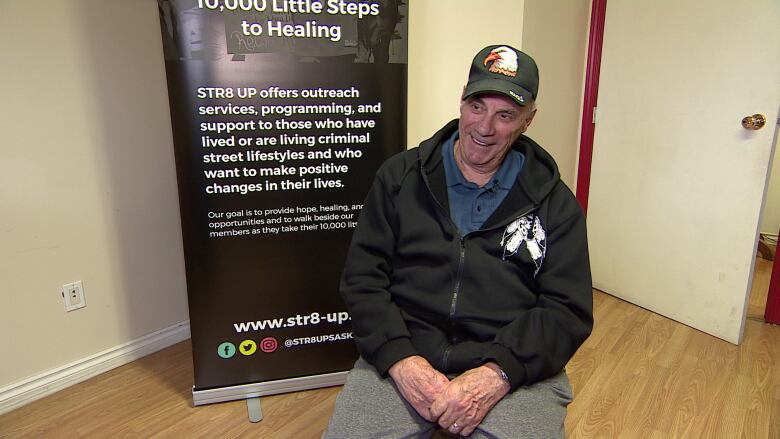Saskatoon police say proposed budget increase would beef up drug enforcement
None of the increase will go towards harm reduction efforts

A proposed increase to Saskatoon's policing budget is steep, but the city's police chief saysthe payoff would be a decrease in the amount of drugs on the streets of Saskatoon.
The Saskatoon Police Service's proposed budget calls for $94.6 million, which is more than $4 million higher than the previous year. City council will decide on the budget inNovember.
According to Chief Troy Cooper of the Saskatoon Police Service, the increaseis required to keep up with a city growing "the size of Humboldt" every year.
The police force is looking to add 10 full-time staff to its operations, including three officers intended to address workloads and growth.
Two other employees would be hired to assess trends and patterns and offending rates, replacing a sergeantwho is in a higher pay bracket.
Another traffic officer has also been added to the proposed budget to help with enforcement related to new legal cannabis regulations.
Defining the role of police
None of the proposed increase is earmarked for harm-reduction strategies, but according to Str8 Up founder Father AndrPoilivre those aren't the responsibility of police.
"The community is the one that really needs to take a look at the root causes of crime like poverty, housing, employment, education, addiction," he said, although he admitted police "are definitely involved whether they like it or not."
Poilivre said police are doing a "fairly good" job in terms of security and suppression of dangerous drugs.
"Any other energies spent on other areas, which they do, that's justifiable as well. But I'm not too sure at what degree or level they'd be able to accomplish that."

The police force is struggling to keep up with Saskatoon's growth, the chief said,and it is hard to identify "other energies" beyond what staff are currently able to accomplish.
"Our role in the whole view of drugs, particularly around drugs like crystal meth, is the enforcement piece of it. We realize that's not the only way to address drugs or addictions but that's our responsibility. We're adding some strength for 2019," said Chief Cooper.
He said the force's main contributionto mitigating addictions in Saskatoon is to cut off the supply.
Defining success
While police's role is clear go after traffickers and reduce the supply of dangerous drugs to Saskatoon it's hard to measure the success of that strategy.
Poilivre has one marker:
"Less people in jail."
His work with Str8Up brings him into contact with police often. He said that while he respects them, he doesn't always believe in how they do their job.
Yes, our budget talks about enforcement but I think there's a recognition that that's not the big picture, or the whole picture.- Saskatoon Police Service Chief Troy Cooper
"The jails are overcrowded. The courts are out of control, and we have less lawyers today than we had last year at this time in legal aid," said Poilivre, though he doesn't blame police for issues with the courts.
"I would simply say, keep on doing what you're doing, but do it with empathy, with gentleness, caring, respect, and then you'll do a good job."
In October 2017, Saskatoon mayor Charlie Clarke took stock of the city's crime and told said on CBC's Blue Sky"our system is broken."
"There are too many instances where people are falling through the cracks, and those social conditions that lead to crime are not being dealt with effectively."
Today, Chief Cooper says "there's some accuracy there."
Enforcement alone is an inefficient solution.
"Yes, our budget talks about enforcement but I think there's a recognition that that's not the big picture, or the whole picture," said Cooper
"You have to be effective. You can't just have things like education as well. You need to have things like harm reduction, treatment as well. As a community we need to look at how we're handling addictive drugs."
The Chief pointed to the "Hub" intervention model as one way police are contributing to harm-reduction and prevention efforts.
The model coordinates between service providers to address situations facing families and individuals with high risk factors
Stakeholders meet often to discuss and collaborate, includingpolice, social services, the health sector, corrections, and others.
A low-cost suggestion

Faith Eagle has come into contact with police manytimes.
She got out of a gang eight years ago with the help of Str8 Up and Poilivre.
"When you get arrested by the police and they say you're going in jail, they don't give an explanation, like 'you have a problem. You're drug addicted and you're an alcoholic,' " she said of her experience
"They're just like, 'you're a bad person.' They don't say 'you can heal' or 'you're hurting, let's try these steps.' They don't do that."
Eagle said this contributed to her having trust issues with police.
The knowledge and self-confidence she's gained since exiting the gang and recovering from her addiction now empower her in her dealings with police.
"If they ask me my name, I say 'Faith Eagle' and tell them my birthday. I don't have to say it with shame or guilt."
Her mistrust lingers, though. She has a no-cost suggestion for police.
"If they could come out toward us First Nations or ex-gang members, be human toward us and we will be human back. We're not raging animals. We do communicate, we do get healthy, we do deal with our addictions."












_(720p).jpg)


 OFFICIAL HD MUSIC VIDEO.jpg)
.jpg)



























































































